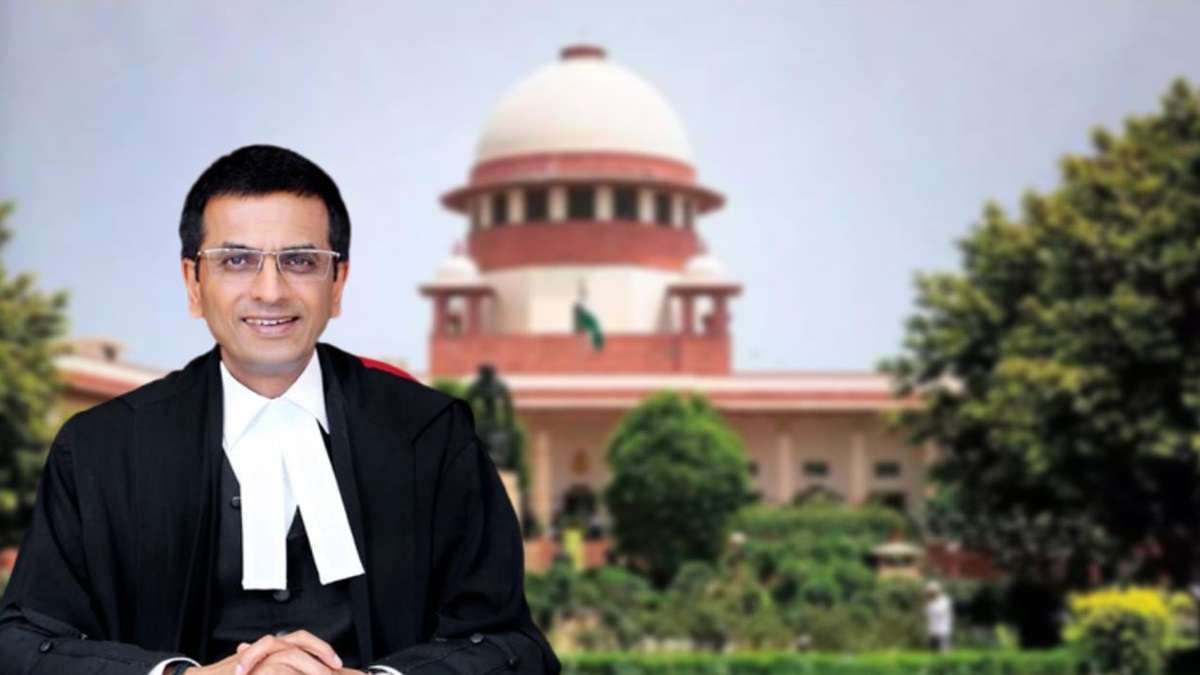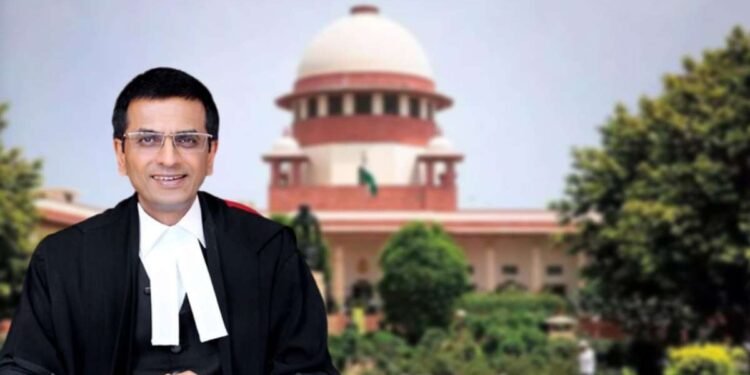
On November 8, 2023, Chief Justice of India (CJI) D.Y. Chandrachud bid farewell to his post after completing a two-year term marked by significant judicial reforms and landmark decisions. His departure from the Supreme Court bench officially concludes his tenure as the country’s top judge, which began on November 9, 2022. As Justice Chandrachud prepared to demit office on November 10, 2023, all eyes are on his successor, Justice Sanjiv Khanna, who will assume office as the 51st CJI on November 11.
A tenure marked by landmark judgments
Justice Chandrachud’s time as CJI saw the delivery of several critical rulings that have shaped Indian jurisprudence. His tenure was characterised by a commitment to upholding the Constitution, advancing individual freedoms, and advocating for social justice. Among his notable decisions were the landmark verdicts on the right to privacy, the decriminalisation of homosexuality, the electoral bonds scheme, and his nuanced position on Jammu & Kashmir’s Article 370.
His final day on the bench was marked by heartfelt reflections on his career. “I won’t be able to deliver justice from tomorrow, but I am content,” he said, acknowledging that his time on the bench had been a profound journey of legal service. He also sought forgiveness from anyone he may have unintentionally hurt during his tenure, quoting the Jain phrase “Michhami Dukkadam,” which means “May all my misdeeds be forgiven.”
The life of a retired CJI: What happens after term ends?
As is customary for all judges of the Supreme Court, Justice Chandrachud will be prohibited from practicing law in any Indian court post-retirement, as per Article 124(7) of the Indian Constitution. This restriction, which applies to all Supreme Court judges, is intended to preserve the integrity of the judiciary and prevent conflicts of interest. The ban reflects a fundamental ethical principle: that retired judges should not use their former positions to influence ongoing legal matters or seek personal advantage.
But while retired Chief Justices of India may not return to the courtroom, they continue to play important roles in the legal and public spheres. Here are some of the paths a former CJI like Justice Chandrachud might take after retirement:
- Retired justices, including CJIs, are often sought after as arbitrators or mediators in complex legal and commercial disputes. India’s Arbitration and Conciliation Act, of 1996, allows retired judges to take on these roles, where their extensive experience in interpreting the law makes them valuable assets for resolving conflicts outside the courtroom.
- Many retired judges serve on governmental commissions or tribunals, contributing their legal expertise to public administration. For instance, former CJIs often find themselves heading the National Human Rights Commission (NHRC), the National Green Tribunal (NGT), or similar bodies where their insights into constitutional and administrative law can aid in resolving matters of national importance.
- A retired CJI may choose to enter the world of academia, teaching law or delivering guest lectures at prestigious law schools across the country. With a wealth of judicial experience, former CJIs like Justice Chandrachud can contribute significantly to the next generation of legal professionals.
- Many retired CJIs have been appointed to constitutional roles such as governors of states or have served as members of important government committees. These roles allow them to continue contributing to public policy while staying outside the direct political fray.
Criticisms and controversies of post-retirement apppointments
While these roles allow retired judges to continue serving the public, there are ethical considerations and occasional controversies surrounding post-retirement appointments. One common critique is the potential for perceived conflicts of interest. For example, the appointment of former CJI Ranjan Gogoi to the Rajya Sabha shortly after his retirement sparked a debate on whether such appointments undermine the independence of the judiciary.
Justice Chandrachud’s tenure, like those of many other senior judges, was also marked by growing public scrutiny of judicial appointments, including the elevation of judges to higher courts. While he maintained that his decisions were driven by merit, the public perception of judicial impartiality remains a crucial concern.
Justice Chandrachud’s legacy
As Justice Chandrachud moves toward retirement, his legacy is already secure as one of the most progressive Chief Justices in recent history. His tenure was characterised by a deep commitment to human rights, constitutional safeguards, and legal reforms. He played a central role in upholding the fundamental right to privacy, decriminalising homosexuality, striking down the controversial electoral bonds scheme, and pushing for gender equality in the judiciary.
In his farewell address, Justice Chandrachud expressed confidence in his successor, Justice Sanjiv Khanna, calling him a stable and dignified leader who would continue the work of strengthening India’s judiciary. “There is not going to be any difference when I leave this court because a person as stable as Justice Khanna will take over,” he said.
In the years to come, Justice Chandrachud’s decisions are likely to continue to influence the trajectory of Indian law, ensuring that his impact will be felt long after he steps down.
Chief Justices like DY Chandrachud may retire from the bench, but their legal influence often extends well beyond their tenure. Whether in arbitration, academia, or public service, retired judges continue to contribute to society, preserving the values they uphold during their judicial careers. As Justice Chandrachud prepares to step down, the legal community and the public at large are left to reflect on his transformative contributions to India’s judicial system and the high standards he set during his time as CJI.


